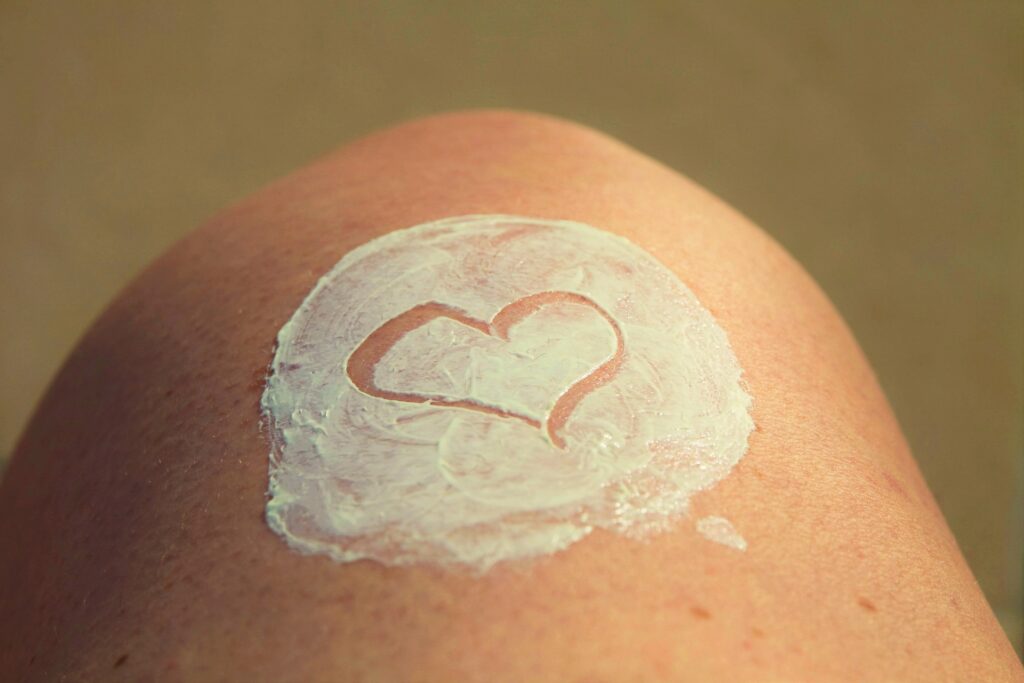Revealing Radiance, Effective Ways on How to Tighten Skin after Weight Loss.

Losing weight is a remarkable accomplishment that can bring numerous health benefits and boost self-confidence. However, one common concern that many individuals face after significant weight loss is loose or sagging skin. This can be a source of frustration and may affect body image.
While it’s important to focus on overall health and well-being rather than solely on physical appearance, it’s understandable that tightening the skin becomes a priority for many individuals.
In the quest for tight and healthy skin after weight loss, adopting a holistic approach that addresses various factors affecting skin elasticity is essential (1).
A combination of lifestyle choices, skincare routines, and patience is necessary to achieve the desired results.
By taking a comprehensive approach, individuals can optimize their chances of improving skin tone and achieving a more contoured appearance.
So, let’s delve into the strategies that can help tighten the skin alongside weight loss and promote overall skin health.
Weight Loss Impact on Skin Elasticity
Weight loss can have a significant impact on skin elasticity. When we gain weight, our skin stretches to accommodate the increased volume of fat deposits.
Over time, the skin gradually loses its ability to snap back into place, especially if weight gain has been rapid or if the excess weight has been carried for an extended period. During weight loss, as the body sheds excess fat, the skin may struggle to adapt to the reduced volume.
This can lead to a loss of elasticity, resulting in loose skin or sagging skin. Several factors contribute to how weight loss affects skin elasticity:
Age: As we age, our skin naturally becomes less elastic due to a decrease in collagen and elastin production. Therefore, older individuals may experience more noticeable loose skin after weight loss.
Genetics: Genetics play a role in determining skin elasticity.
Some individuals are genetically predisposed to have more resilient and elastic skin, while others may be more prone to sagging skin.
Weight Fluctuations: Repeated cycles of weight gain and weight loss can strain the skin’s elasticity, making it more difficult for it to regain its original shape after subsequent weight loss.
Duration of Excess Weight: The longer someone has carried excess weight, the more the skin may have stretched and lost elasticity.
This can result in more significant challenges in tightening the skin after weight loss.
Ways to Lose Skin After Weight Loss
Losing skin is a major concern for most people nowadays. But few of them are aware of the concept of how to lose skin after losing pounds. So, this article is for those who are wondering about the subject of removing excess skin.
Build Lean Muscles
Strength training plays a crucial role in toning and firming the body by building lean muscle mass.
When we engage in strength training exercises, such as lifting weights or using resistance bands, it stimulates the growth and development of muscle fibers. (2)

As we lift weights, our muscles experience microscopic damage. During the recovery phase, the body repairs and strengthens these muscles, resulting in increased muscle mass.
This process leads to improved muscle definition, giving the body a more toned and sculpted appearance. Building lean muscle mass helps to increase metabolism. Muscles are metabolically active tissues, meaning they burn more calories at rest compared to fat.
By increasing muscle mass through strength training, the body’s overall calorie expenditure increases, contributing to weight loss and a more toned physique. To maximize the benefits of strength training for toning and firming the body, it is recommended to perform exercises that target different muscle groups.
A combination of compound exercises, which involve multiple muscle groups, and isolation exercises, which focus on specific muscles, can help achieve balanced muscle development and a sculpted physique.
Proper Hydration
Proper hydration plays a crucial role in maintaining healthy skin. Our skin is made up of cells that require an adequate amount of water to function optimally. Here are some key reasons why hydration is significant for healthy skin:
Moisturizes the Skin: When the body is well-hydrated, it helps to keep the skin moisturized from within.
Sufficient water intake ensures that skin cells remain hydrated, which contributes to a smooth and supple complexion.
Enhances Skin Elasticity: Dehydrated skin can appear dry, and dull, and may lack elasticity.
When the skin lacks moisture, it becomes more prone to developing fine lines, wrinkles, and sagging. Optimal hydration helps to improve skin elasticity, making it appear firmer and more youthful.
Flushes Out Toxins: Drinking an adequate amount of water helps to flush out toxins from the body.
When toxins accumulate, they can lead to various skin issues such as acne, inflammation, and dullness. Hydration supports the body’s natural detoxification processes, promoting clearer and healthier skin.
Improves Skin Tone and Texture: Proper hydration can contribute to an even skin tone and smoother texture. Well-hydrated skin reflects light better, giving it a radiant and vibrant appearance. Additionally, hydrated skin is less prone to flakiness and roughness, resulting in a softer and more refined complexion.
Supports Wound Healing: Hydration is essential for the skin’s ability to heal wounds and recover from damage.
Water helps to transport essential nutrients and oxygen to skin cells, aiding in the regeneration and repair process. It also helps to maintain a protective barrier on the skin’s surface, preventing excessive moisture loss and promoting faster healing.
To maintain healthy skin through hydration, it is recommended to drink an adequate amount of water throughout the day.The exact amount varies for each individual, but a general guideline is to aim for about 8 glasses (64 ounces) of water daily.
Additionally, consuming hydrating foods, such as fruits and vegetables with high water content, can further support skin hydration (3).
Take Balanced Diet
A balanced diet rich in fruits, vegetables, lean proteins, and healthy fats is crucial for maintaining overall health and promoting vibrant skin.

Here’s why these components are beneficial:
Fruits and Vegetables: Fruits and vegetables are packed with essential vitamins, minerals, and antioxidants that nourish the skin.
They help protect against oxidative stress, reduce inflammation, and support collagen production, which promotes skin elasticity and a youthful appearance.
Aim to include a variety of colourful fruits and vegetables in your diet to obtain a wide range of nutrients.
Lean Proteins: Including lean proteins such as poultry, fish, legumes, and tofu in your diet is important for skin health.
Proteins provide the building blocks for collagen production, which helps maintain skin elasticity and strength. They also aid in repairing damaged skin tissues and promoting a healthy complexion.
Healthy Fats: Incorporating sources of healthy fats, such as avocados, nuts, seeds, and fatty fish like salmon, is beneficial for skin health.
These fats provide essential fatty acids, including omega-3 and omega-6, which help maintain the skin’s natural oil barrier.
This barrier keeps the skin moisturized, reduces dryness, and improves overall skin texture.
Hydration: While not directly related to diet components, maintaining proper hydration is essential for healthy skin.
Alongside a balanced diet, make sure to drink an adequate amount of water throughout the day.
Hydration supports skin elasticity, flushes out toxins, and promotes a radiant complexion.
Limit Processed Foods and Added Sugars: To maintain optimal skin health, it’s important to limit the consumption of processed foods and added sugars.
These can contribute to inflammation, oxidative stress, and breakouts.
Instead, focus on whole, nutrient-dense foods that provide the vitamins, minerals, and antioxidants your skin needs.
Importance of Nutrients for Skin
Consuming nutrients that support skin health, including vitamins A, C, and E, as well as collagen-promoting foods, is essential for maintaining a vibrant and youthful complexion.
Here’s why these nutrients are important:
Vitamin A: Vitamin A plays a crucial role in skin cell growth and repair.
It helps to promote a smooth and even skin tone, reduce the appearance of wrinkles, and improve skin elasticity.
Foods rich in vitamin A include carrots, sweet potatoes, spinach, kale, and liver.
Vitamin C: Vitamin C is a potent antioxidant that aids in collagen production, fights free radicals, and protects the skin against oxidative damage.
It helps to improve skin texture, reduce hyperpigmentation, and enhance skin radiance.
Vitamin E: Vitamin E is another powerful antioxidant that helps protect the skin from damage caused by free radicals and UV rays (4).
It promotes skin hydration, reduces inflammation, and supports the healing process. Foods high in vitamin E include almonds, sunflower seeds, spinach, and avocado.
Glimpse of Skincare Routine
Establishing a regular skincare routine is essential for promoting skin health and elasticity.
Here’s a recommended skincare routine that incorporates key products and steps:
Cleansing:
Start your routine by cleansing your face with a gentle cleanser suited to your skin type.
Choose a cleanser that effectively removes dirt, oil, and impurities without stripping the skin of its natural moisture. Massage the cleanser onto damp skin, then rinse thoroughly with lukewarm water.
Cleansing helps maintain a clean canvas for the rest of your skincare products.
Toning:
After cleansing, apply a toner to help balance the skin’s pH levels and remove any residual impurities.
Look for a toner that is alcohol-free and contains soothing ingredients like rosewater or chamomile extract. Apply the toner to a cotton pad and gently swipe it over your face and neck.
Moisturizing:
Hydration is key to maintaining skin elasticity.
Apply a moisturizer suitable for your skin type after toning. Look for a moisturizer that contains ingredients like hyaluronic acid, which helps retain moisture, and antioxidants, which protect the skin from environmental damage.

Massage the moisturizer onto your face and neck using upward strokes. Pay attention to areas that tend to be drier, such as the cheeks and forehead.
Sun Protection:
Never skip sunscreen, as it plays a vital role in protecting the skin from harmful UV rays that can accelerate ageing and reduce elasticity.
Opt for a broad-spectrum sunscreen with an SPF of 30 or higher. Apply it generously to all exposed areas of your skin, including the face, neck, and any other areas not covered by clothing. Reapply every two hours, especially if you’re spending extended periods outdoors.
Targeted Treatments:
Consider incorporating targeted treatments into your routine to address specific concerns.
Products containing collagen or hyaluronic acid can help promote skin elasticity and hydration. Look for serums or creams that feature these ingredients and apply them after moisturizer.
Gently massage the product into your skin, focusing on areas where you desire enhanced elasticity.
Nighttime Routine:
In the evening, follow the same steps of cleansing, toning, and moisturizing.
Additionally, consider incorporating a night cream or serum that focuses on skin repair and rejuvenation.
Look for products containing ingredients like retinol or peptides, which can help boost collagen production and improve skin elasticity over time. While following a healthy lifestyle, including proper nutrition, exercise, and a skincare routine, can contribute to improving skin elasticity (5).
It’s important to acknowledge that some individuals may experience significant loose skin after weight loss that may require medical interventions.
Weight loss, especially when it involves a significant amount of weight, can lead to excess skin due to the stretching that occurs during the weight gain period. Remember, every individual’s journey and experience with loose skin may vary, and it’s crucial to prioritize your overall well-being and body confidence.
Wrap-Up
In summary, weight loss can often lead to loss of skin due to the impact on skin elasticity.
However, achieving tight and healthy skin after weight loss is possible with a holistic approach. It involves incorporating strength training exercises into your routine to build lean muscle mass. Strength training not only tones and firms the body but also improves overall strength and functionality.
Proper hydration is crucial for maintaining healthy skin. When the body is well-hydrated, it helps keep the skin moisturized from within, resulting in a smooth and supple complexion.
Hydration also enhances skin elasticity, flushes out toxins, improves skin tone and texture, and supports the skin’s ability to heal wounds and recover from damage.
A balanced diet plays a significant role in promoting skin health. Including fruits, vegetables, lean proteins, and healthy fats in your diet provides essential nutrients that nourish the skin.
Vitamins A, C, and E are particularly important for skin health and can be obtained from a variety of foods.
Additionally, consuming collagen-promoting foods and incorporating ingredients like hyaluronic acid in skincare products can support collagen production and improve skin elasticity.



